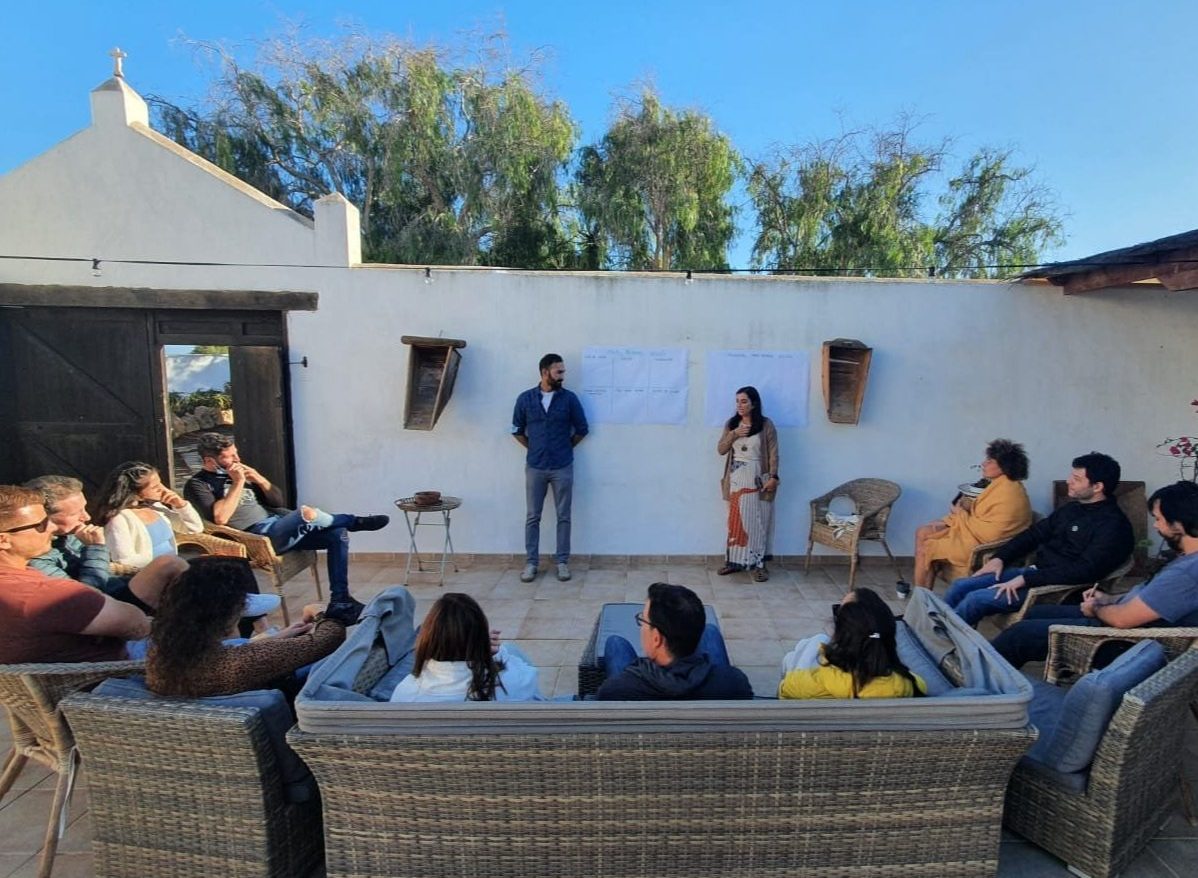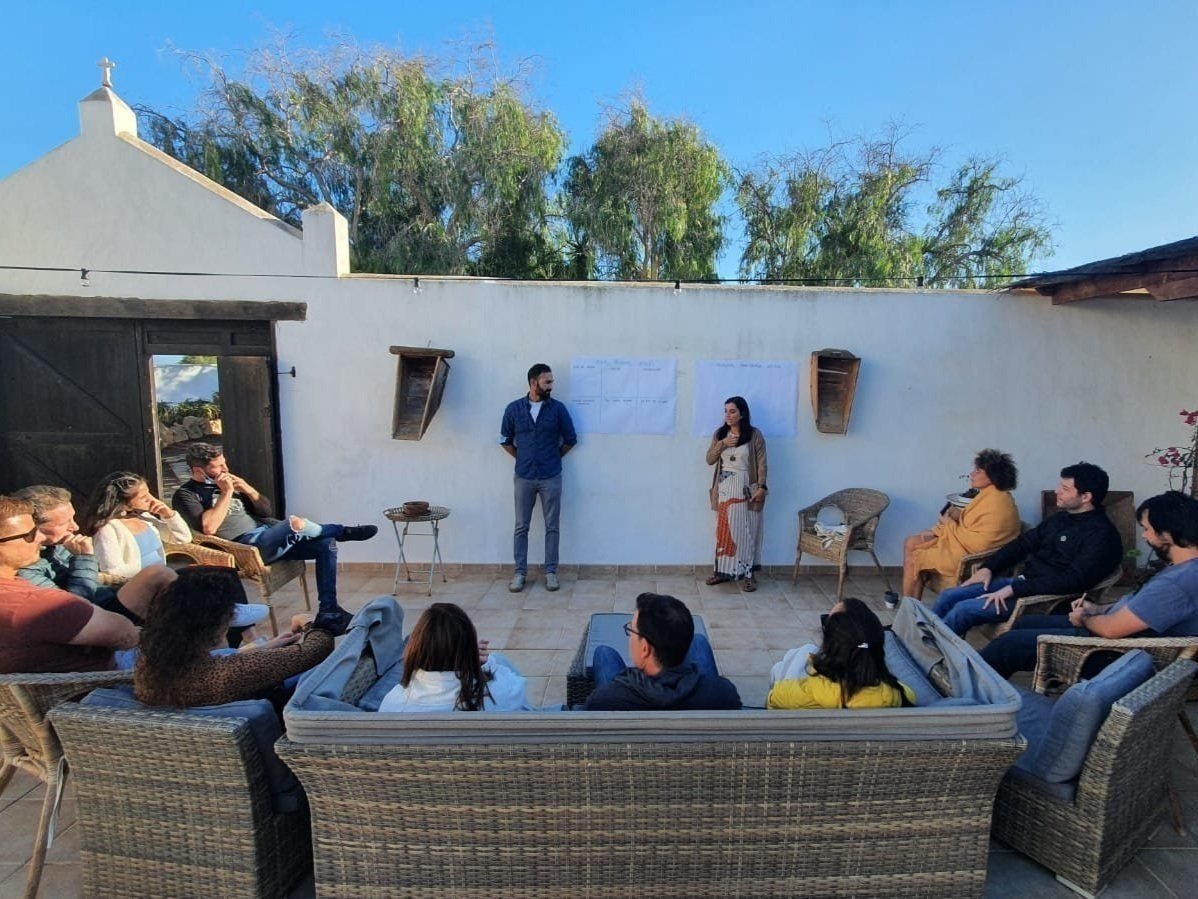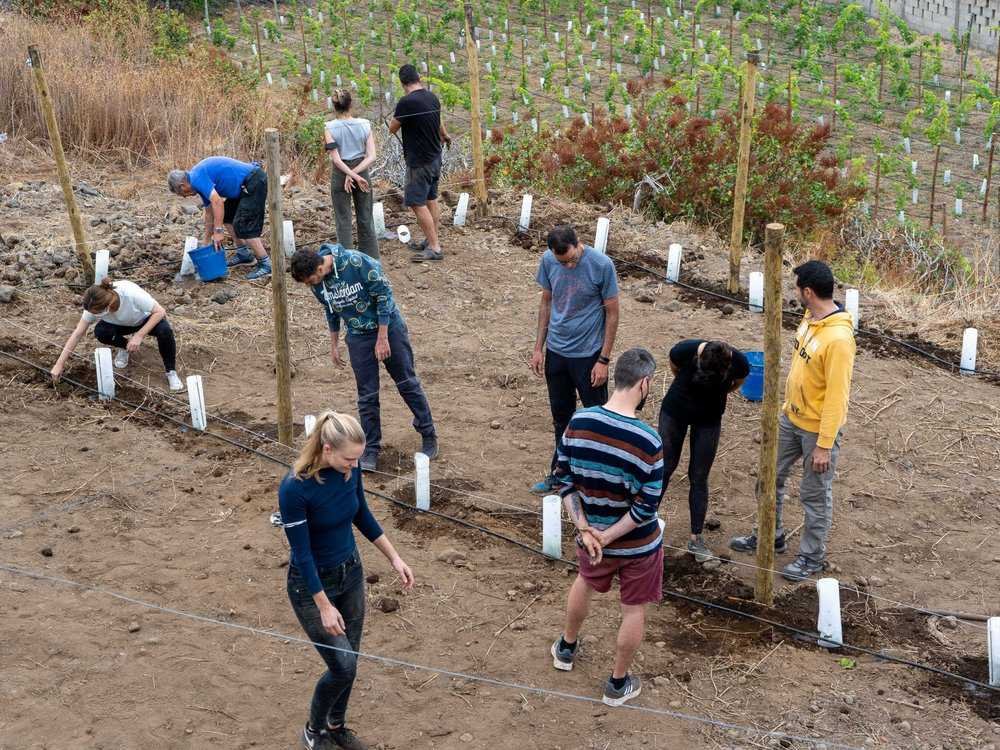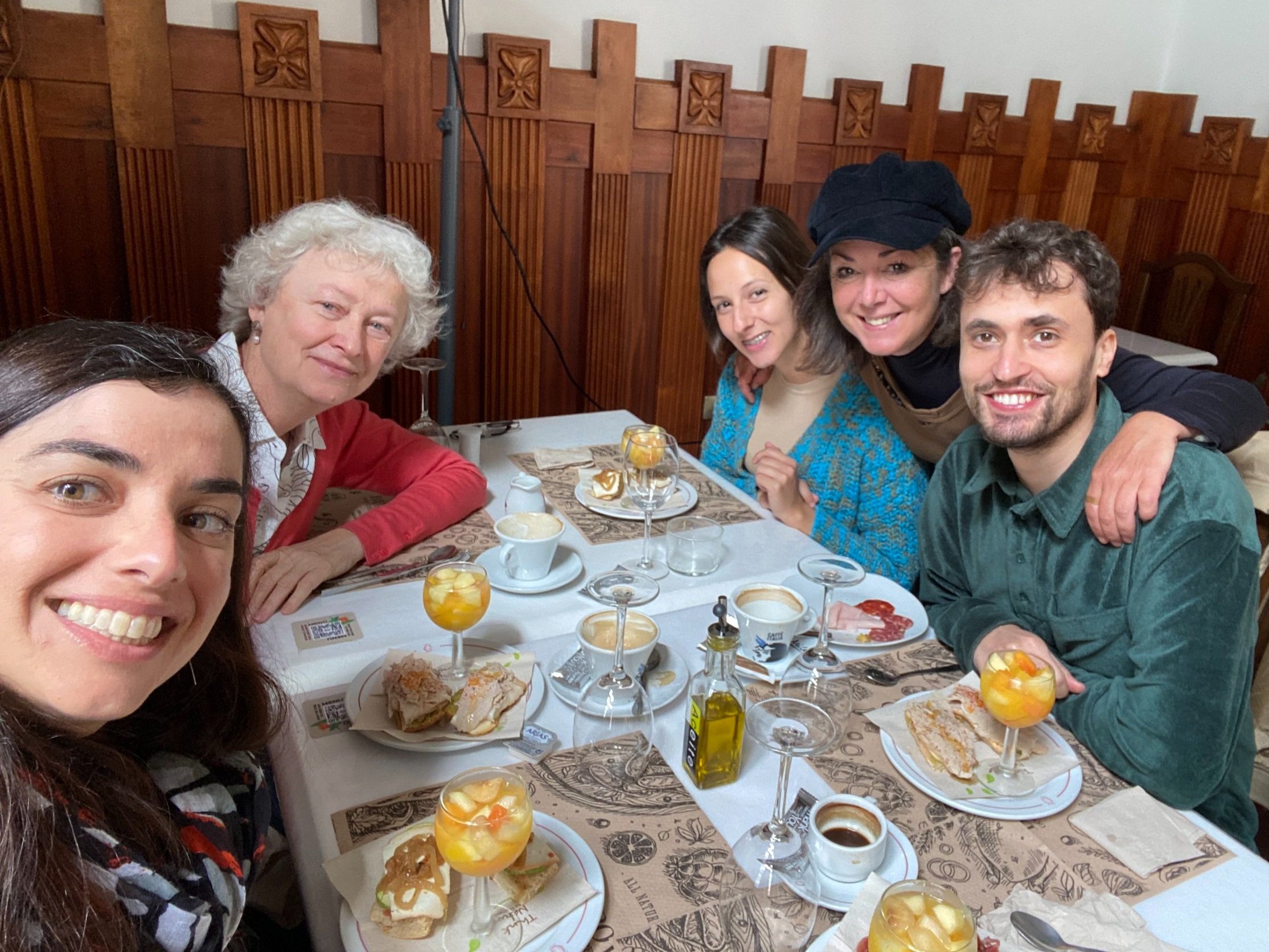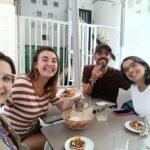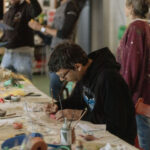Article written by Elsa Rodríguez (co -founder of remote peoples and project responsible)
When we began to consider the idea of Pueblos Remotos , even before the name was born, we already knew that the identification and resolution of challenges would be key elements in our value proposition. In fact, for those who have not heard us count it yet (we repeat a lot!), Everything arose during the desktop of a lunch of any day in which we began to debate about emptied Spain.

When we returned to coworking from which we usually work, Carlos began to draw our ¨Mind-mapping ¨ in the windows. This crazy idea was to make a diagnostic analysis of the current situation of Canarian rurality, which in many cases differs from that of the Peninsula and other parts of Europe.
Here, on the islands, there is no isolation so accused of the villages, since in 15 minutes by car you can be in an urban nucleus with all the services you need. And although that is not the main problem, we do believe that one of the main causes for which they are not undertaken in rural environments is because of the accumulation of challenges that people who want to start up a business face.
Employing in rural environments is a challenge in itself
Feeling of loneliness, ignorance on how to carry out their idea or lack of capacity and resources to improve their projects are some of the problems that small entrepreneurs and entrepreneurs with whom we work normally in rural environments.
In those initial conversations, the passion they have so they do so and how they defend it with cape and sword. They want to continue fighting, but many times the day to day drown them. In addition, on numerous occasions we are left with the impression that they do not feel support from their surroundings, or other people in the same situation as them, but "all in the town go to their ball" they usually tell us.
In this world marked by individualism, why were we going to expect a small and remote town not to be? I am not saying that everyone is, but there are many cases in which although they know their life of a lifetime, they do not know how they are or how they are doing with their business. Sometimes we have idealized that in smaller environments we all help and benefit mutually, but the reality we have seen so far is not so wonderful.
Needs analysis, prior step to challenges
Once we have identified and selected, based on our criteria, the people where an edition is going to be held the main local actors that will be part of it, we begin to co-create with them what would be the 3 weeks that last An experience for teleworking "Freelance¨ .

Co-creation session with local actors for the edition of remote Fuencaliente
Apart from defining the activity that each of the local actors will lead and establish the calendar with many other secondary activities, another fundamental pillar in which we make a lot of emphasis is in the analysis of needs that they consider that they are the most important.
Among all we do an exercise of “brainstorming” in which they share what they would like to improve, the barriers that are found, and what they want to focus on. From that analysis the challenges that are going to be raised so that teleworkors solve them are selected. In the ancient edition, for example, teleworkors themselves were part of the analysis of needs, which facilitated the understanding of the projects and encouraged the involvement in them.
Needs analysis session with teleworkors and local actors during the old remote edition
Normally an average of 3 challenges are selected for each local actor and can be of two types:
-
Technicians: more related to digital, management or planning needs. Some examples can be: improvements of a web page, design of a marketing plan or a grill of content, brainstorming and prioritization of a year view. Likewise, workshops are offered to local actors about the use of social networks and different tools.
Work session to resolve the challenge of improving the website of the Rural Hotel La Age of the Court. Photography by Yeray Cabrera.
-
Practical: They have to do with doing more physical things. For example, in Icod Remote some teleworkors put their hands on the ground planting vineyards with Victor de la Bodega Cambium and sowed crops with Toñi de Finca La Costa, and in ancient remote they made soaps in an artisanal way with vidaloe tere and also helped in the Permaculture garden with Aurora de Verdeaurora.
Planting vineyards with Victor de la Bodega CAMBIUM for Icod Remote
How are teleworkors involved to solve the challenges?
In the initial registration form, one of the filters we have is that people who want to participate in our experiences have to be willing to dedicate 2-3 hours of their week to collaborate with local projects. During the interviews, which is the second step for them to sign up, many ask us how this involvement is done with local actors.
We do not force anyone to collaborate with a certain actor, but that arises naturally according to the interests that each and the feeling that they feel with rural entrepreneurs. Nor do we demand that they have to help them a specific time, on the contrary, we leave them full freedom to organize themselves based on their own availability and that of the actor in question.
In the "post" already published in this blog you can find examples of how some of the teleworkors have been involved and the perspective from the point of view of the local actors:

Javi López
He tells us in ¨ investing in anecdotes: living a few weeks in a remote town ¨ how it was involved with the children of The Animal Academy teaching them to use tools such as Notion, Squarespace, Paycomet and Stripe.

Malole Rodríguez
In its article ¨ Rurality connected: you have to live it to understand it ¨, explains how some of the teleworkors helped them take out a new version of the website of the Rural Hotel La Age of the Court and how they continued involved two months after the end of The experience.

Gonzalo Fernández
He spoke to us two weeks ago about "There is after living a remote work experience" , and how he got involved with the actors for ancient remote and continues to imply with them and with us in remote villages. For example, giving talks about productivity to the community.
The effectiveness of challenges exceeds expectations
We are usually asked what the results are and if the challenges are resolved. The reality is that of a total of about 18 challenges initially raised, double solutions are usually given. That is, when teleworkors are involved in the day -to -day life of the local actor, they realize other things that could be improved and propose them as well.
What is the most beautiful thing about all this? Not only that local actors improve their businesses but, thanks to the challenges and the design of the experience itself, connections that go beyond those 21 days are established. In just one year of life, we have seen teleworkors to visit the local actors and the local actors themselves continue to collaborate with each other, because among all we have demolished the barrier to face the world alone, since they begin to be part of a Group to rely on.
Recent reunion with some of the local participants and actors of Icod Remote
One of the things we have realized is that we have many audiovisual materials of the activities but almost nothing of the challenges, so in the next editions we will also try to immortalize those moments so that we can share with all of you, the community that follows us .
In short, I hope that with this article there is a little clearer why we consider that the challenges are a fundamental piece for the magic of rurality connected and that they are part of the values that we want to convey and of our value proposition.

